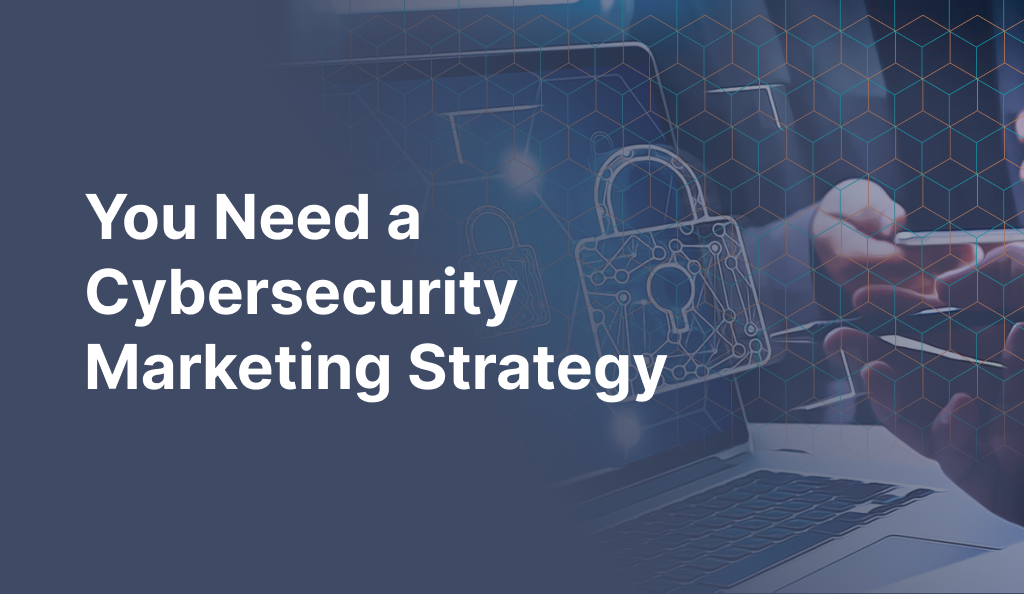A robust cybersecurity marketing strategy is not just beneficial but a necessity for effectively marketing cybersecurity solutions, addressing unique challenges, and clearly communicating the immense value of your services. Its implementation is urgent and can significantly impact your business.
Unlike physical products, cybersecurity focuses on prevention—protecting against threats that clients often cannot see or fully understand. This creates a communication barrier: how do you market something successfully when nothing happens?
A specialized cybersecurity marketing strategy is crucial to overcoming these challenges and connecting with your target audience.

The Challenges of a Cybersecurity Marketing Strategy
Marketing cybersecurity solutions presents unique challenges that necessitate a well-defined cybersecurity marketing strategy. The cybersecurity landscape is constantly evolving, with new threats and technologies emerging rapidly. This dynamic environment demands that firms stay agile and responsive in their marketing efforts.
Clients need continuous updates on the latest developments in cybersecurity to ensure their measures are up to date. Staying ahead in this field is crucial. Firms must position themselves as leaders in innovation to remain competitive.
Communicating Complex Solutions
In cybersecurity, trust and credibility are paramount. Clients are looking for more than just services; they seek partners who can safeguard their most sensitive data and digital assets. A targeted cybersecurity marketing strategy that emphasizes your firm’s expertise and reliability is essential to building this trust.
Standing Out in a Competitive Market
The cybersecurity market is highly competitive, with many firms offering similar services. Differentiation requires a deep understanding of your client’s challenges and effectively positioning your solutions. A well-executed cybersecurity marketing strategy should highlight your firm’s superior technology, exceptional customer service, and personalized solutions to carve out a distinct identity in the market.
Building Trust and Credibility in Your Cybersecurity Marketing Strategy
Trust and credibility are the foundation of successful client relationships in the cybersecurity industry. A well-executed cybersecurity marketing strategy is key to establishing and maintaining this trust.
Clients entrust their most sensitive data and digital assets to cybersecurity firms, making it crucial for these firms to demonstrate reliability and transparency. Clear communication about your firm’s capabilities, the risks it mitigates, and the strategies it employs are essential for building and maintaining client confidence.
Building Authority Through Content
Content marketing is a powerful component of your cybersecurity marketing strategy. By consistently producing thought leadership content—such as blogs, white papers, and case studies—you can showcase your firm’s expertise and proactive approach to emerging challenges. This content not only educates potential clients but also reinforces your firm’s credibility as a trusted authority in the cybersecurity field.
The Importance of Transparency
It is vital to be honest about what your firm can deliver and set clear expectations. Open communication about the measures you take to protect client data and address potential risks directly helps reinforce trust and build long-term relationships. Transparency is a cornerstone of a successful cybersecurity marketing strategy.
Engaging Stakeholders in Your Cybersecurity Marketing Strategy
Cybersecurity purchasing decisions often involve multiple stakeholders, each with distinct priorities and concerns. Successfully engaging both executives and technical professionals is crucial for your firm’s success.
Tailoring Messages for Executives
C-level executives, such as CIOs and CTOs, focus on strategic aspects like risk management, regulatory compliance, and the overall impact on the company’s reputation.
To effectively reach these decision-makers, your cybersecurity marketing strategy should highlight the strategic benefits of your services—emphasizing how your solutions can minimize risks, ensure compliance, and protect the company’s reputation.
By presenting case studies, ROI analyses, and testimonials from other high-level clients, you can further reinforce the value of your services to these executives.
Addressing Technical Concerns
Technical professionals, including IT managers and security engineers, are more concerned with the specifics of the technology you offer. They need to understand the technical capabilities, integration processes, and scalability of your solutions.
It’s essential to demonstrate how your services can address their operational needs while simplifying complex tasks. Providing detailed technical information, product demos, and in-depth resources can build trust and confidence among these professionals, ensuring they are fully informed and supportive of the decision to choose your firm.
Creating a Cohesive Marketing Approach
By crafting a cohesive marketing strategy that addresses the needs of both executives and technical professionals, you can ensure that all key stakeholders are engaged, informed, and confident in choosing your cybersecurity solutions. This approach not only builds trust and credibility but also strengthens your firm’s position as a leader in the cybersecurity industry.
Why a Cybersecurity Marketing Strategy Matters
In the complex and competitive world of cybersecurity, a well-defined marketing strategy is more than just beneficial—it’s essential. Cybersecurity firms face unique challenges that require a specialized approach to marketing. From building trust and credibility to effectively differentiating your services in a crowded market, a targeted cybersecurity marketing strategy is crucial for success.
Investing in a customized strategy not only enhances your online presence but also positions your firm as an industry leader. By addressing the distinct needs of your clients through a tailored approach, your firm can drive sustainable growth and establish long-term relationships with key stakeholders.
